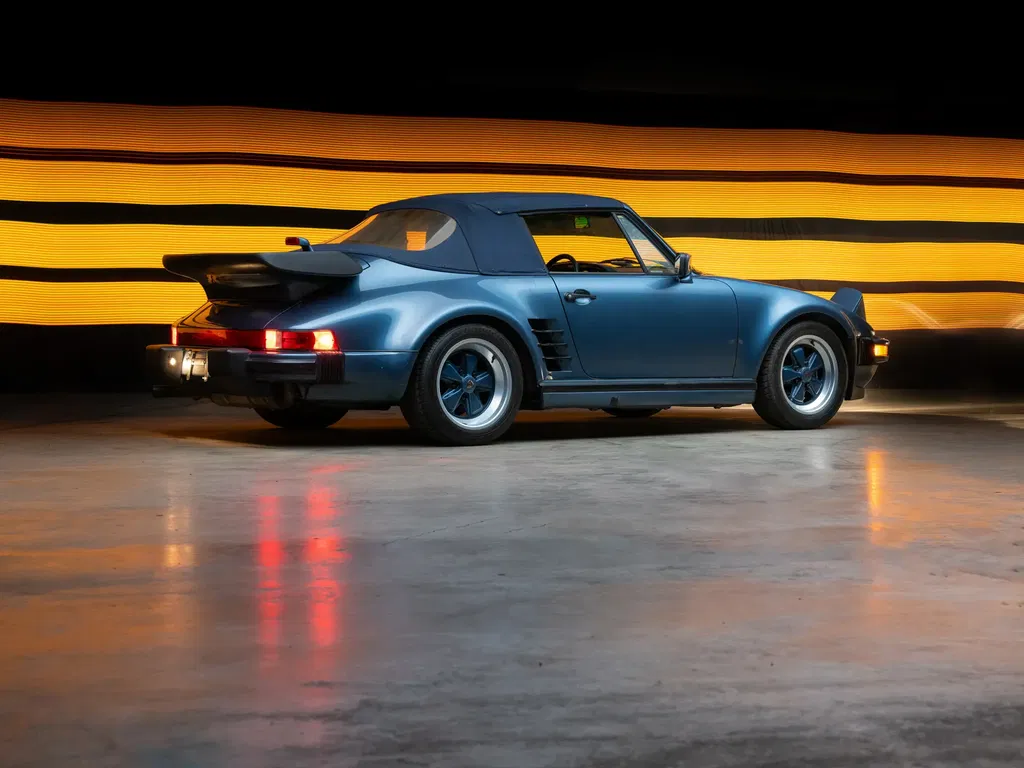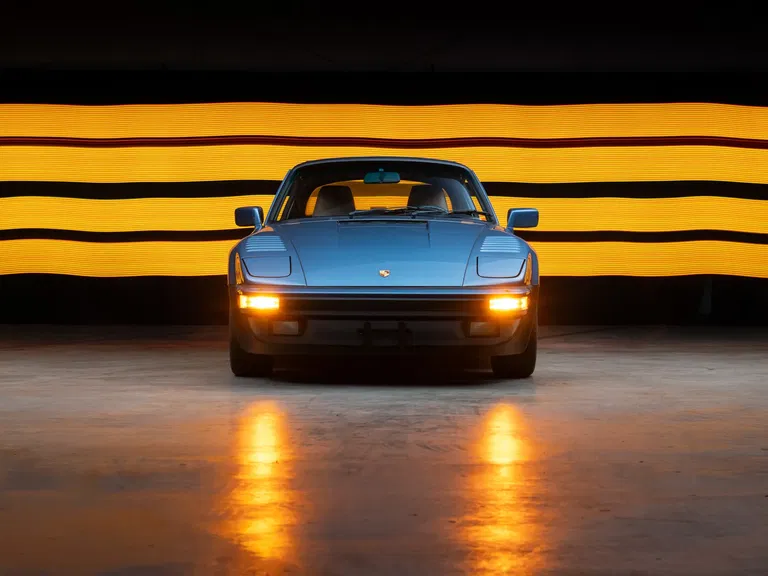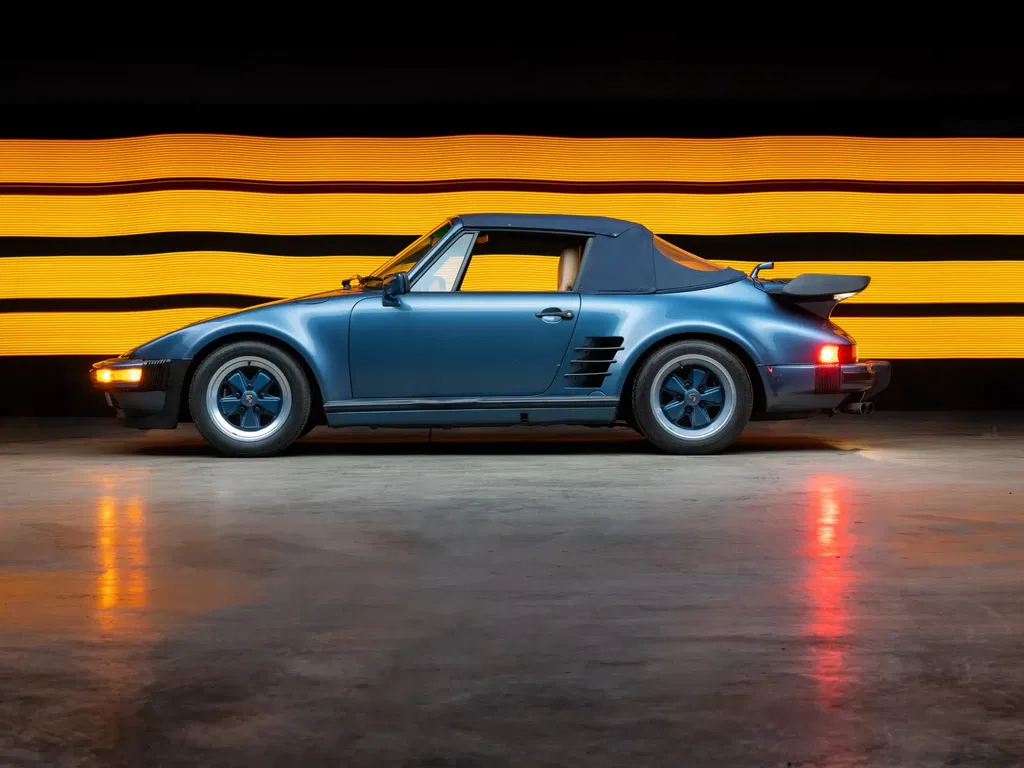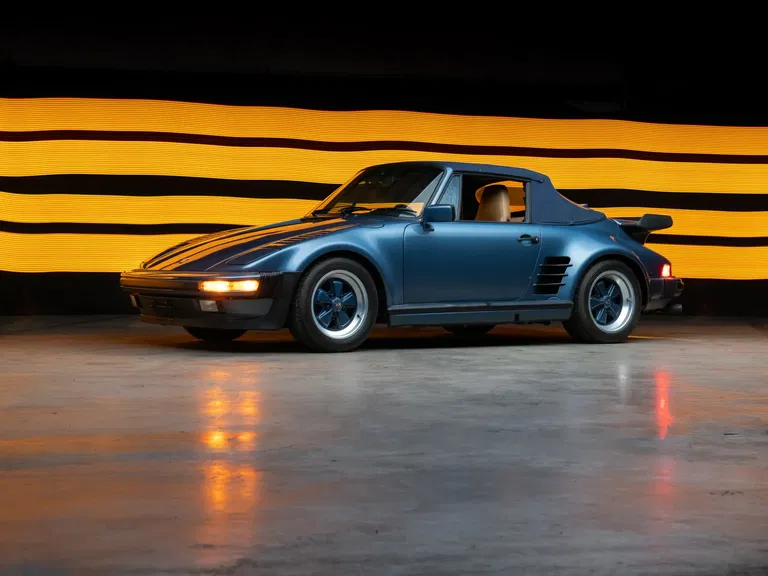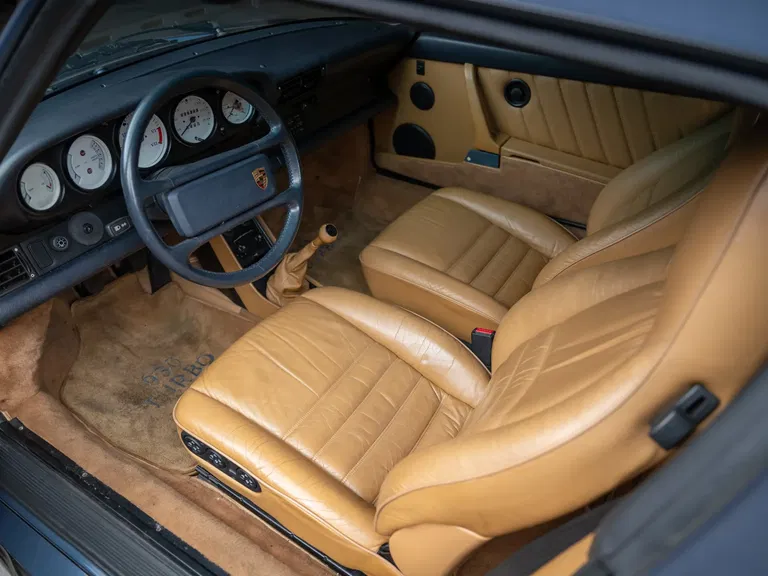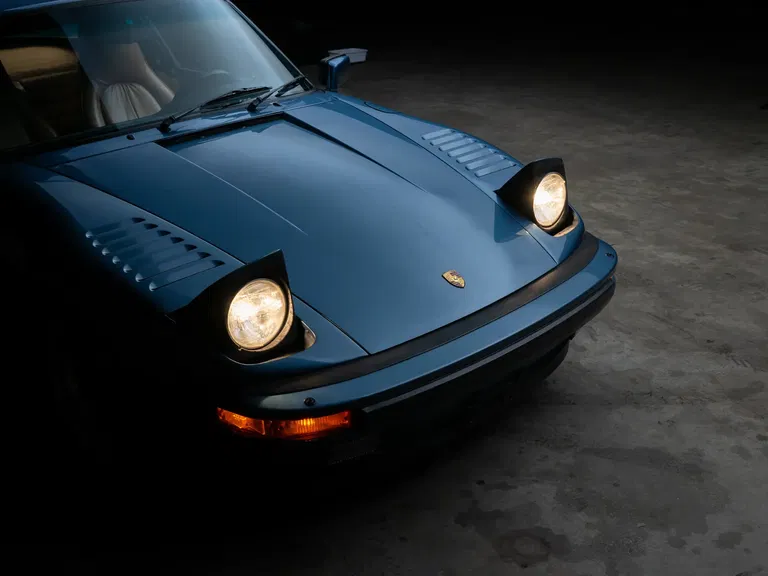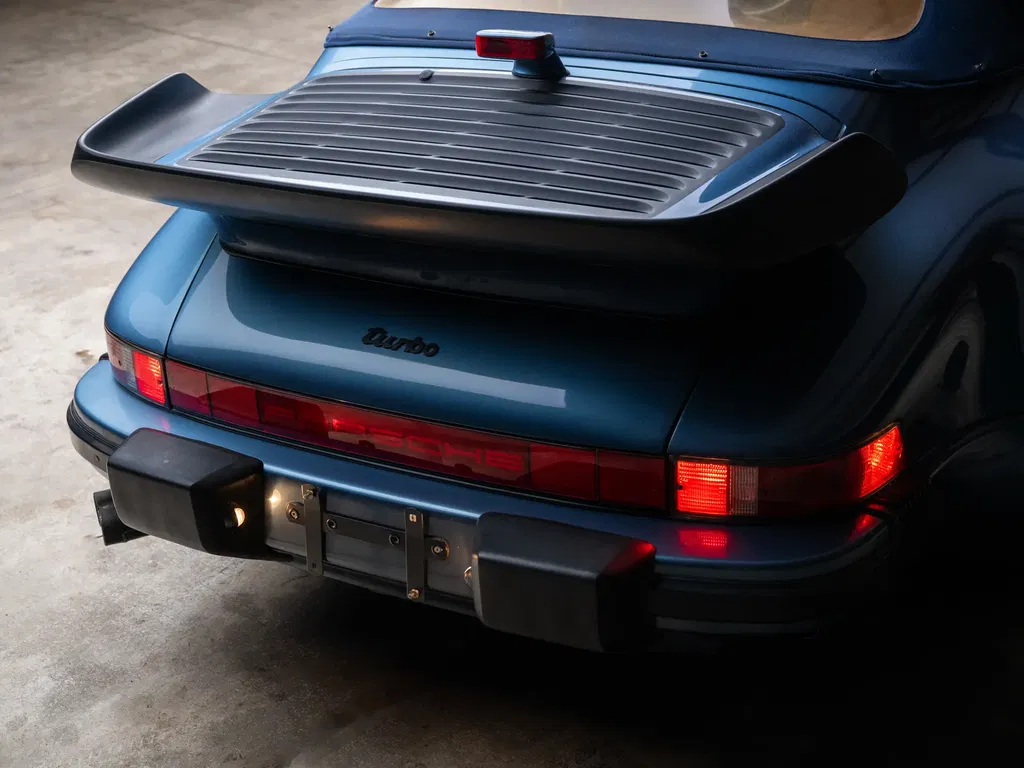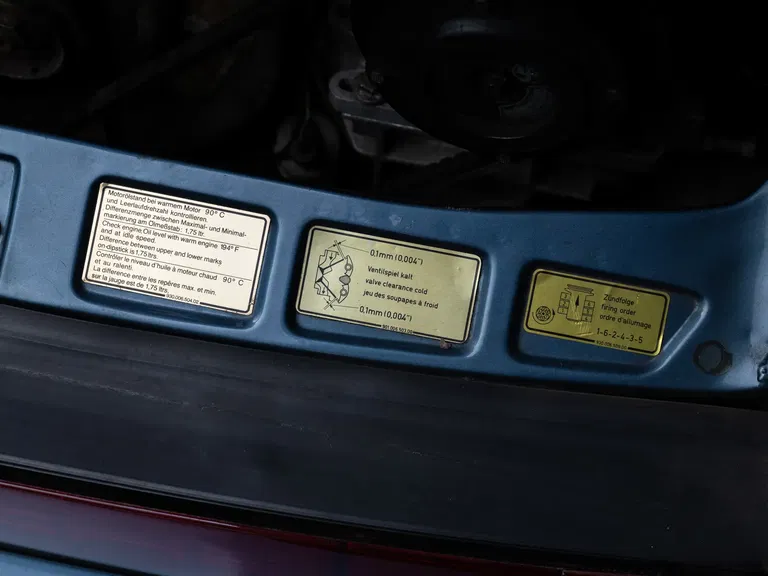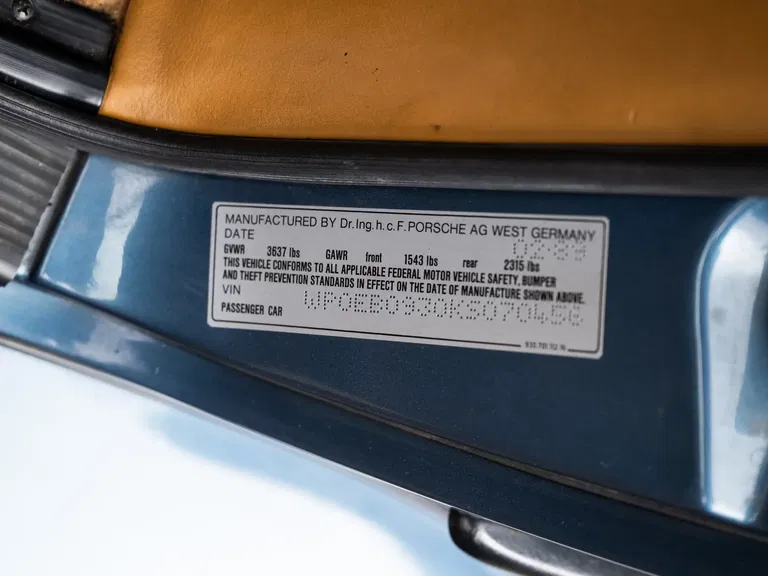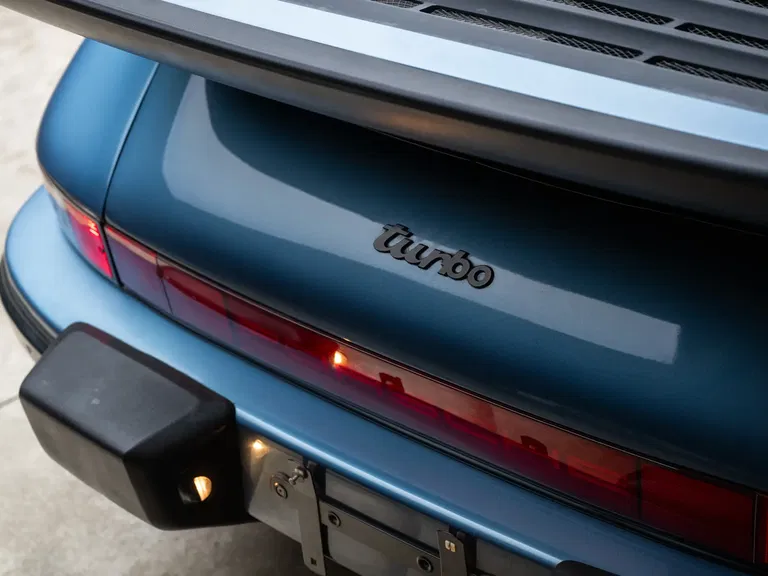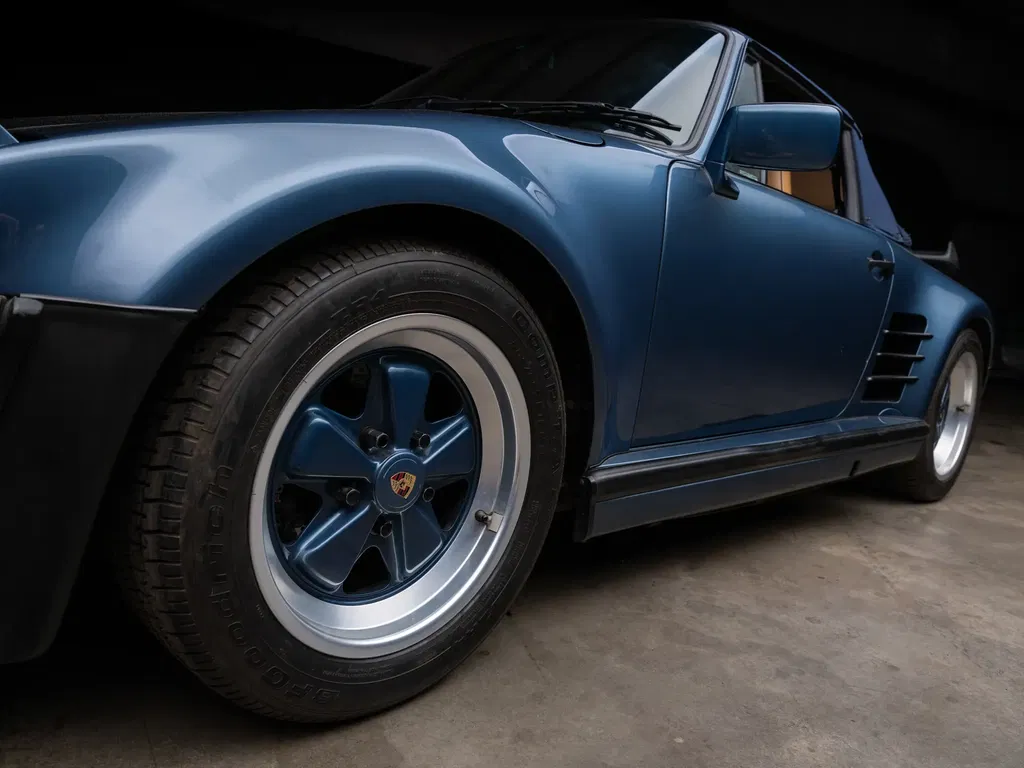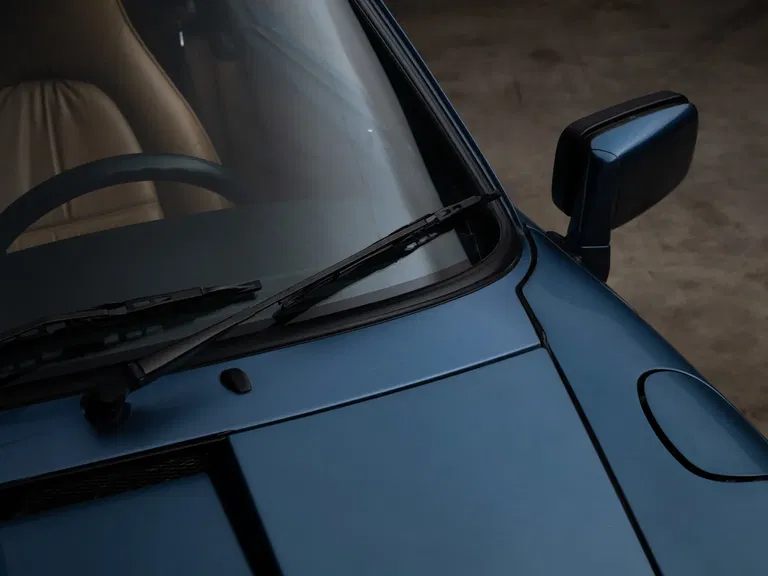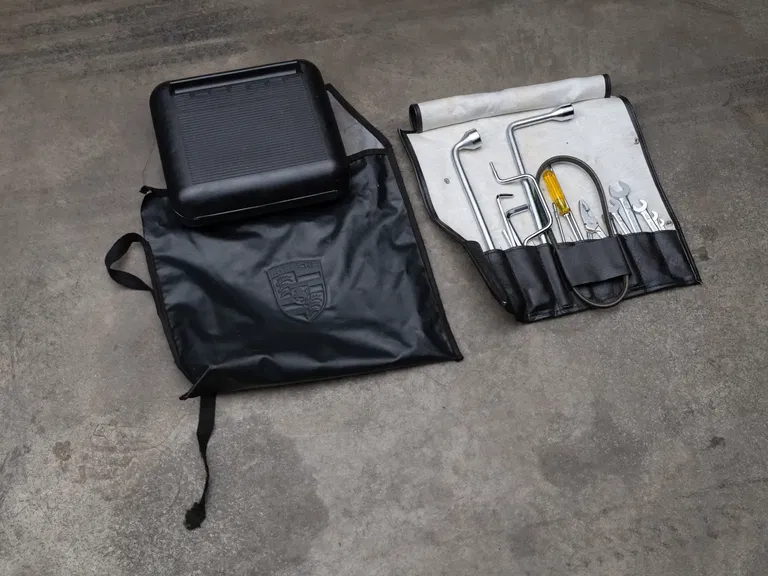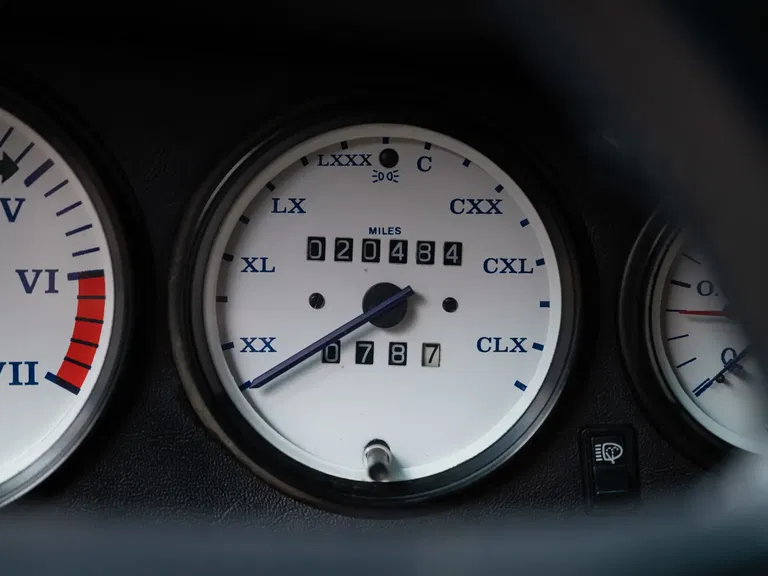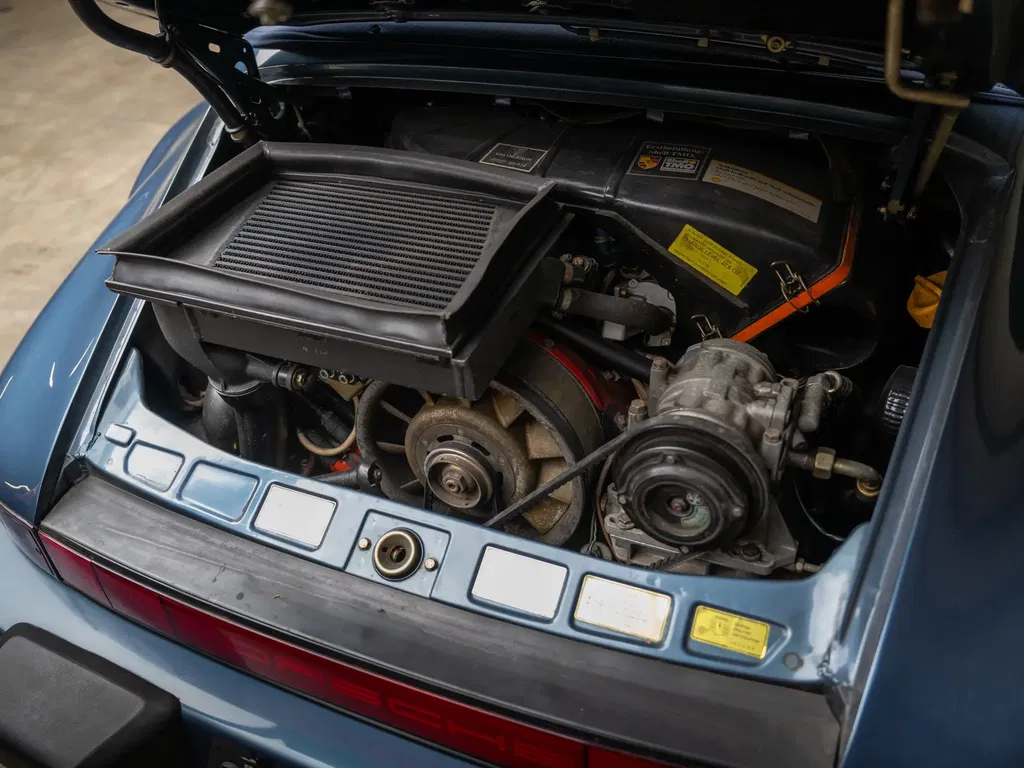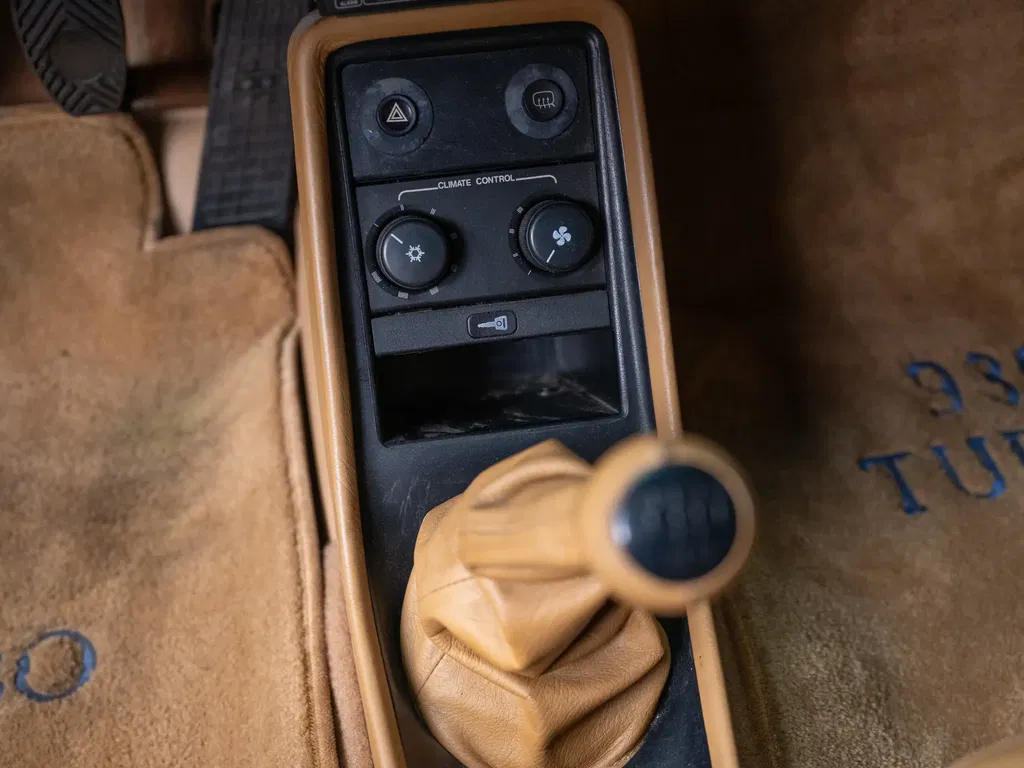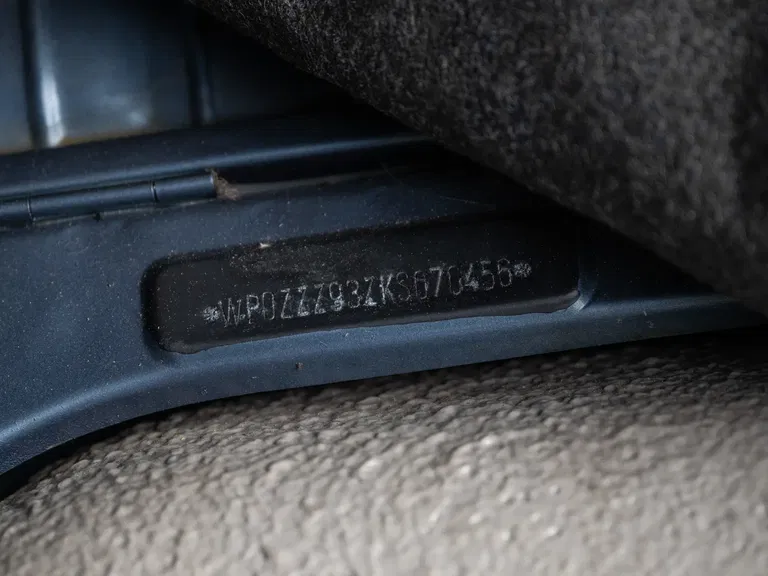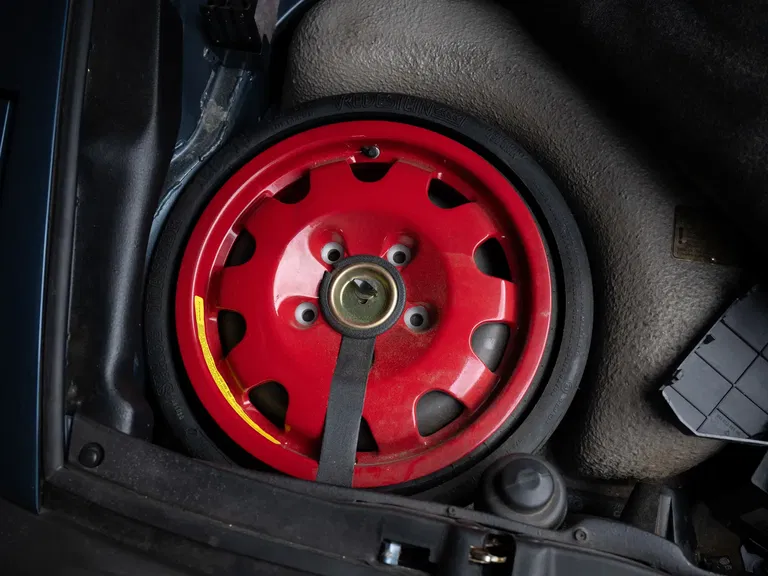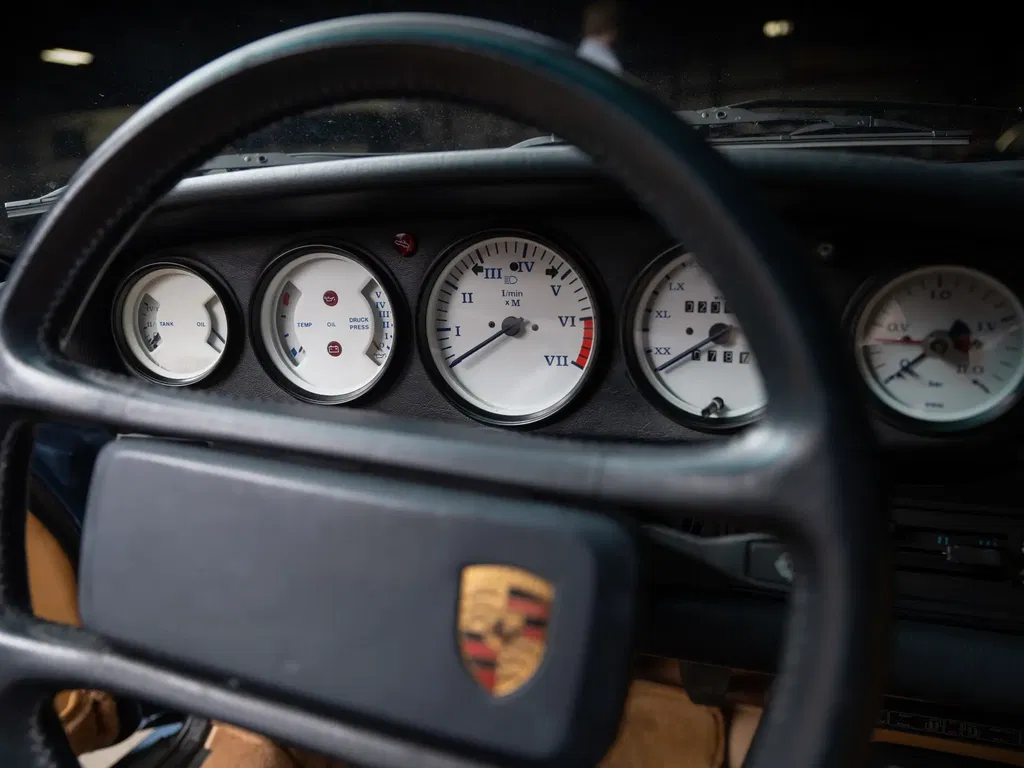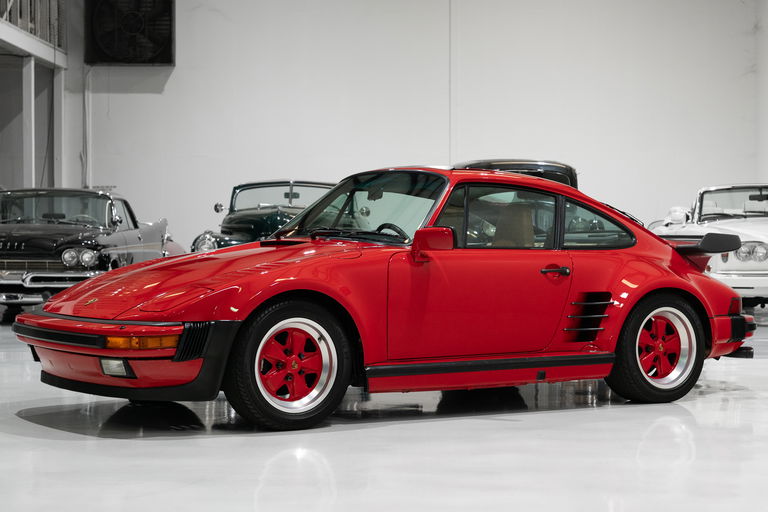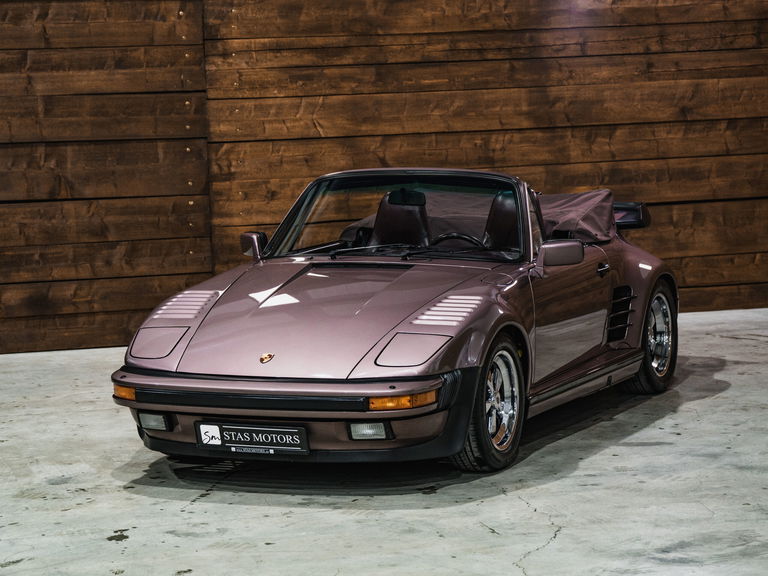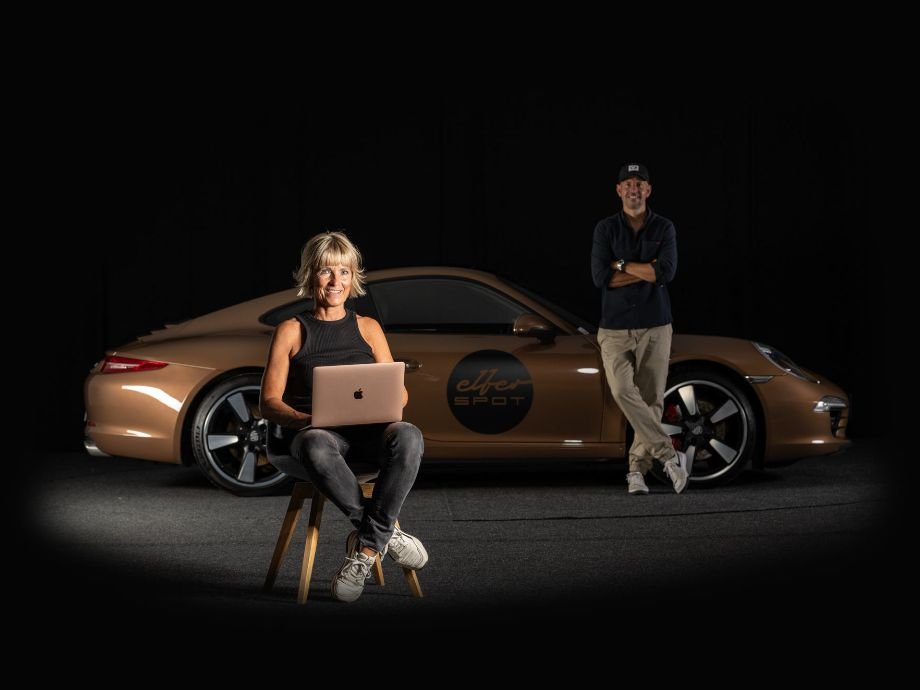The 911 Turbo “Flat-Nose” pays homage to the world-beating type 935 factory racecar developed from the type 930 for Fédération Internationale de l’Automobile Group 5 competition in the mid-1970s. Following its immense success, racing sponsors clamored for a roadgoing version. Porsche’s Exclusive Manufaktur program—sometimes called “Sonderwunsch,” or “Special Wishes”—obliged with an option package for the type 930. The resulting bodywork resembled the aerodynamic 935, with louvered steel front fenders made flush with the hood and fitted with retractable headlamps. The rocker panels were boxed and extended to meet the widened rear quarter panels, which contained new brake-cooling vents with side strakes and an electric fan for additional oil cooling. Wider wheels and tires were fitted at both ends.
Within months of the 935-inspired Flat-Nose treatment’s debut as an option for the European market in 1981, Porsche was overwhelmed with customer requests. Unsurprisingly, it was typically the wealthiest clientele who ordered these cars, often with many additional factory upgrades. In 1987, Porsche finally added the North American Flat-Nose package—known by the option code M505—to its catalogue. Out of the 618 total produced for North America from 1987 through 1989, 356 were Coupes, 235 were Cabriolets, and 27 were Targas, according to the book Porsche 911 Turbo—Air-Cooled Years.
The example offered here is one of only 76 Flat-Nose Cabriolets produced for North America for the 1989 model year. It is finished in a particularly attractive special-order color of Pigeon Blue Metallic that pairs beautifully with the beige partial-leather interior. The color-coordinated Fuchs wheels and dark blue top and trim details combine to create one of the most stunning presentations on a 911 of this era. Besides the M505 Flat-Nose option, the car also came equipped from the factory with a shorter gearshift lever, driver-side lumbar support, supple leather seats, Blaupunkt Reno cassette stereo, an additional amplifier, and a limited-slip differential. Aftermarket instrumentation with roman numeral designations have been installed and can be replaced if desired.
The car appears to have resided in the New York area for most of its life, according to entries in its Carfax report. As of cataloguing time, it showed only 20,484 miles on the odometer, making this rare Flat-Nose with its special color scheme even more desirable. It is accompanied by an air compressor, tool roll, and car cover.


